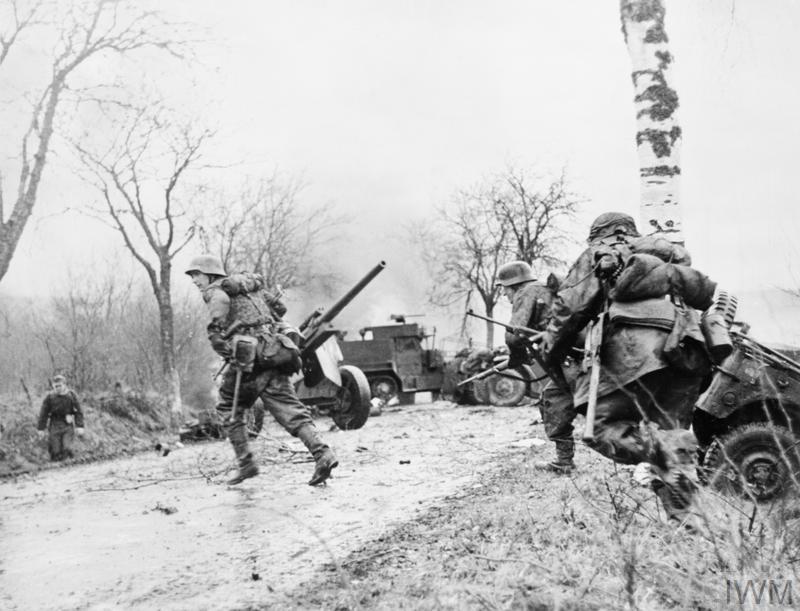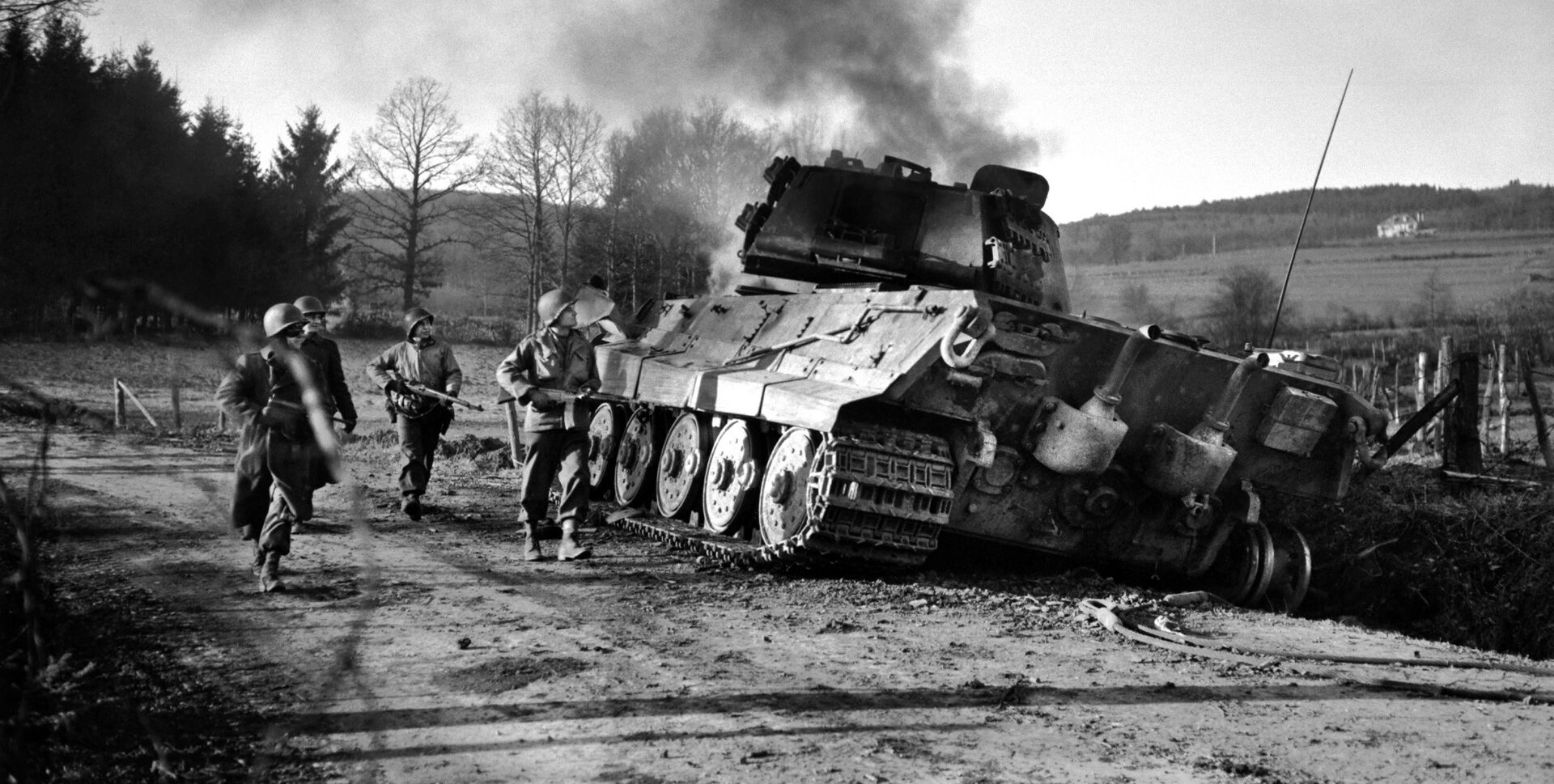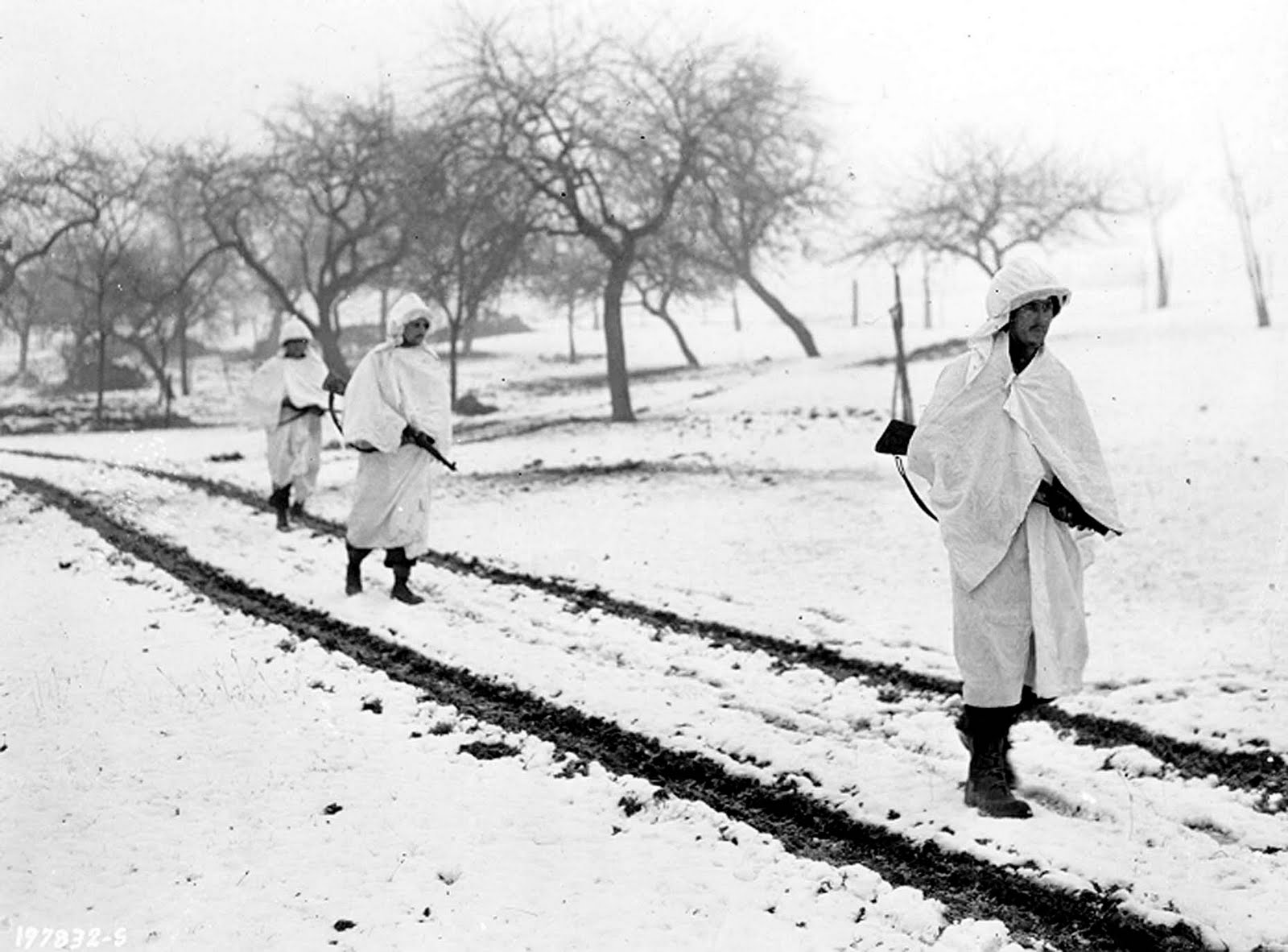Medal of Honor Recipients – Battle of the Bulge
Introduction
Snow-laden foxholes, tank-scarred villages, and frigid forests defined the Battle of the Bulge, but it was the iron will of individual soldiers that turned the tide. Out of some 630,000 Americans who fought in the Ardennes, only twenty-one men earned the Medal of Honor, the nation’s highest decoration for valor “above and beyond the call of duty.” Their feats—charging machine-gun nests, holding off Panthers with a lone bazooka, guiding a burning bomber so crewmates could live—embody the grit that blunted Hitler’s last gamble.
Below, meet each Bulge Medal of Honor hero in turn.
The 21 Honorees
Arthur O. Beyer — Corporal, Co C, 603rd Tank Destroyer Bn.

15 Jan 1945 – Arloncourt, Belgium
Beyer sprinted through deep snow to grenade two machine-gun nests, killing eight and capturing eighteen Germans. His one-man assault cleared a ridgeline and opened the attack for his platoon.
Melvin E. Biddle — Private First Class, 517th Parachute Infantry Regiment

23–24 Dec 1944 – Soy & Hotton, Belgium
As lead scout, Biddle crawled forward alone for twenty hours, silently eliminating snipers and machine-gun crews. His stealth cleared the path that broke the enemy grip on Hotton.
Paul L. Bolden — Staff Sergeant, 120th Inf., 30th Inf. Division

23 Dec 1944 – Petit-Coo, Belgium
Bolden stormed a fortified house under cross-fire, killing or wounding about thirty-five defenders with sub-machine gun and grenades. Though wounded twice, he held the position against a counter-attack, securing the village.
Frederick W. Castle — Brigadier General, 4th Bomb Wing, 8th Air Force

24 Dec 1944 – over Bavenhausen, Germany
Castle’s B-17 was crippled by fighters, engines aflame. Refusing to bail out until his crew escaped, he held the controls until the bomber exploded—sacrificing himself to save his men.
Richard E. Cowan — Private First Class, 23rd Inf., 2nd Inf. Division

17 Dec 1944 – Krinkelter Wald, Belgium
Cowan manned a .30-cal machine gun on an exposed flank for four hours, mowing down attackers and covering his battalion’s withdrawal until ammunition ran dry.
Francis S. Currey — Sergeant, 120th Inf., 30th Inf. Division

21 Dec 1944 – Malmedy, Belgium
Currey seized a bazooka, knocked out three German tanks, rescued five trapped comrades, and then laid suppressive fire so U.S. troops could withdraw safely.
Peter J. Dalessondro — Technical Sergeant, 9th Inf., 2nd Inf. Division

22 Dec 1944 – Kalterherberg, Germany
Operating a forward observation post alone, Dalessondro directed mortar and artillery by open radio. When the enemy overran his position, he fought with captured weapons until relieved.
Archer T. Gammon — Staff Sergeant, 9th Inf., 4th Inf. Division

11 Jan 1945 – near Bastogne, Belgium
Gammon sprinted across open ground to destroy a machine-gun nest, then charged a Tiger tank with grenades. His fearless attack forced the armor to withdraw before he fell to a shell burst.
Robert E. Gerstung — Sergeant, 313th Inf., 79th Inf. Division

19 Dec 1944 – Siegfried Line, Germany
After his crew was hit, Gerstung fired a heavy machine gun solo for three hours, crawling for ammunition under fire and covering his battalion’s disengagement.
James R. Hendrix — Private First Class, 4th Armored Division

26 Dec 1944 – Assenois, Belgium
Hendrix disabled an 88 mm gun, freed two knocked-out tank crews, and led thirty prisoners to the rear, all while wounded and under artillery fire.
Isadore S. Jachman — Sergeant, 513th PIR, 17th Airborne Division

4 Jan 1945 – Flamierge, Belgium
Grabbing a fallen comrade’s bazooka, Jachman strode into the road and drove back two tanks. He fell mortally wounded but saved his company from annihilation.
Truman Kimbro — Technician Fifth Grade, 2nd Engineer Combat Bn.

19 Dec 1944 – Rocherath, Belgium
Volunteering to mine a road against armor, Kimbro crawled ahead alone when his squad was pinned. He finished laying the mines while fatally wounded, stopping the German advance.
José M. Lopez — Sergeant, 23rd Inf., 2nd Inf. Division

17 Dec 1944 – Krinkelt, Belgium
Lopez relocated his machine gun three times to enfilade advancing infantry, killing roughly one hundred enemy soldiers and delaying their breakthrough.
Vernon McGarity — Staff Sergeant, 393rd Inf., 99th Inf. Division

16 Dec 1944 – Krinkelt, Belgium
Despite wounds, McGarity retrieved ammunition, rescued wounded men, and manned an exposed machine gun, holding the line during the first shock of the offensive.
Nicholas Oresko — Master Sergeant, 302nd Inf., 94th Inf. Division

23 Jan 1945 – Tettingen, Germany
Oresko, bleeding from a leg wound, cleared two bunkers alone with grenades and SMG fire, leading his platoon to break the German line.
Curtis F. Shoup — Sergeant, 346th Inf., 87th Inf. Division

7 Jan 1945 – Tillet, Belgium
Shoup charged straight into a machine-gun nest at point-blank range, silenced it with grenades, and was killed instantly—his sacrifice opened the road for his company.
William A. Soderman — Private First Class, 9th Inf., 1st Inf. Division

17 Dec 1944 – Rocherath, Belgium
Soderman ambushed a spearheading tank column, disabling three tanks with a bazooka and covering the U.S. withdrawal despite a serious leg wound.
Horace M. Thorne — Staff Sergeant, 89th Cavalry Recon Sq., 9th Armored Division

21 Dec 1944 – Grufflingen, Belgium
Thorne flanked enemy armor with grenades and his sub-machine gun, destroying a machine-gun crew and damaging a tank before being fatally struck.
Day G. Turner — Sergeant, 319th Inf., 80th Inf. Division

8 Jan 1945 – Dahl, Luxembourg
Turner’s nine-man squad held a house for four hours. When ammo ran out, they fought hand-to-hand with knives and rifle butts, killing about twenty-five attackers before forcing surrender.
Henry F. Warner — Corporal, 2nd Armored Division

20 Dec 1944 – Bütgenbach, Belgium
For two freezing nights Warner manned a 57 mm anti-tank gun in the open, destroying multiple Panzers at ranges as close as thirty yards until he was killed while loading his last round.
Paul J. Wiedorfer — Private First Class, 318th Inf., 80th Inf. Division
25 Dec 1944 – Chaumont, Belgium
Wiedorfer dashed forty yards through deep snow under grazing fire, destroyed two machine-gun nests with grenades, and led his platoon to capture thirty-five prisoners.
Conclusion
From a lone bazooka gunner in a snow-choked village to a brigadier general guiding a dying bomber, these twenty-one Americans proved that one person’s courage can change the course of battle. Their exploits bought vital time, held key crossroads, and inspired units reeling under the enemy onslaught. Seventy-plus years later, monuments stand silent in the Ardennes, but the legacy of these heroes resonates in every liberated field and village. Read their full citations, remember their names, and let their stories remind us that valor has no rank, no origin—only resolve.


